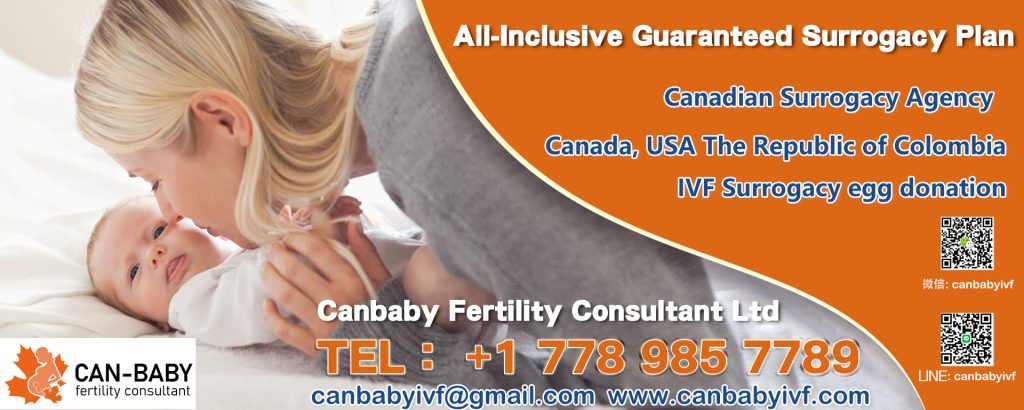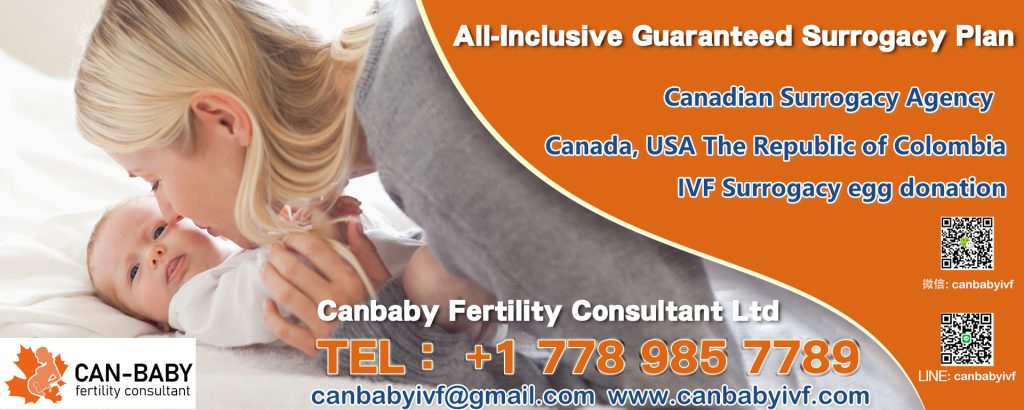
Disclaimer: This article is an original work by Canbaby Fertility Consultant LTD, a Canadian surrogacy consulting company. Reproduction or redistribution without permission is strictly prohibited.
What Canadian Intended Parents Should Know Before Seeking International Surrogacy Options
In recent years, international surrogacy has become an increasingly popular option for Canadian intended parents facing barriers at home. With Canada’s restrictions on commercial surrogacy, long wait times for surrogate matches, and limited legal options for sex selection or compensation, many turn to surrogacy-friendly countries such as the United States, Colombia, Georgia, Ukraine, and Mexico.
While the appeal of faster timelines and more flexibility is clear, ethical considerations must remain front and center when engaging in surrogacy abroad. Navigating these questions is critical—not just for the well-being of the surrogate and child, but also for ensuring that intended parents maintain legal and moral integrity throughout the process.
This article explores the ethical landscape of international surrogacy from the perspective of Canadian intended parents and offers guidance on how to choose an ethical, legal, and compassionate path to parenthood abroad.
1. Why Do Canadian Parents Choose Surrogacy Abroad?
Legal and Practical Limitations in Canada
Under Canadian law, surrogacy must be altruistic. The Assisted Human Reproduction Act (AHRA) prohibits paying a surrogate beyond reimbursement for approved, documented expenses. In addition, many fertility clinics in Canada face long waitlists for surrogate matches due to a limited pool of eligible women willing to carry altruistically.
International Alternatives Offer Faster, More Flexible Solutions
Countries like the United States (especially California), Colombia, and Georgia allow commercial surrogacy, offering:
- Legally binding contracts
- Clear parental rights
- Access to embryo genetic screening (e.g., PGT-A)
- Shorter wait times
- Greater control over the process
But while these advantages are attractive, they raise important ethical questions that Canadian intended parents must consider before making such a life-changing decision.
2. The Ethical Dilemma: Autonomy, Fairness, and Exploitation
Are Surrogates Abroad Truly Giving Informed Consent?
One of the most pressing concerns is whether women in economically developing countries can freely and independently consent to becoming surrogates. If a woman is experiencing financial hardship, is her consent truly voluntary, or is it driven by coercion—economic or otherwise?
To address this, intended parents should:
- Choose agencies that provide psychological counseling and legal consultation to surrogates in their native language.
- Confirm that surrogates are not under pressure from family members, brokers, or agencies.
- Ask for transparent information about how surrogates are recruited, screened, and supported.
Are Compensation Levels Fair and Respectful?
While compensating a surrogate is legal in many countries outside of Canada, the amount and structure of that compensation matter. Ethical surrogacy means ensuring the surrogate is fairly compensated for her time, risk, and contribution—without being underpaid or exploited due to poverty.
Avoid clinics or agencies that:
- Offer extremely low compensation packages compared to local living standards
- Use all-inclusive “package deals” that obscure what the surrogate is actually receiving
- Fail to offer insurance, maternity leave coverage, or postpartum care
3. Medical Ethics and Risk Management
Are Surrogates Receiving Proper Medical Care?
Some low-cost surrogacy programs cut corners on medical care, placing both the surrogate and unborn child at risk. Intended parents should demand high medical standards, including:
- Regular prenatal visits with licensed obstetricians
- Clear documentation of medication use (e.g., hormonal injections, progesterone support)
- Access to emergency services and neonatal care
- Evidence of safe embryo transfer protocols
Additionally, parents should ask whether surrogates are transferred multiple embryos at once to boost success rates—a practice that increases risks of twin or triplet pregnancies and complications.
Are Decisions Guided by Medical Professionals or Business Interests?
In ethically questionable programs, surrogate decisions may be influenced more by the business model than by medical advice. For example, pushing for early cesarean deliveries for scheduling convenience, or ignoring a surrogate’s physical discomfort, is a red flag.
Ethical surrogacy means putting medical welfare before profit margins.
4. Child Welfare and Legal Parenthood
Will the Child’s Legal Status Be Secure in Canada?
Some international surrogacy arrangements result in legal limbo—where a child born abroad may face challenges obtaining Canadian citizenship or establishing legal parentage. This is especially true in countries where birth certificates name the surrogate as the legal mother or where same-sex couples or single parents are not recognized.
Canadian intended parents must:
- Work with Canadian immigration lawyers to ensure the child’s citizenship and legal parentage will be recognized upon return
- Avoid countries or clinics with unstable surrogacy laws or unclear exit processes
- Ensure the surrogate’s relinquishment of parental rights is voluntary, legal, and documented
Ethical surrogacy respects not only the rights of the surrogate but also the long-term identity, security, and well-being of the child.
5. Cultural Sensitivity and Global Power Dynamics
Are Intended Parents Aware of Their Social Privilege?
Most Canadian intended parents who pursue surrogacy abroad are economically privileged in comparison to surrogates in countries like Colombia, Georgia, or Mexico. Ethical surrogacy requires awareness of this power imbalance and a commitment to equitable, respectful relationships.
Ask yourself:
- Are we treating the surrogate as a partner in this journey, or as a means to an end?
- Are we open to learning about her culture, beliefs, and needs?
- Are we willing to maintain communication with the surrogate after birth if she wishes?
Surrogacy is not simply a transaction. It is a deeply human process that demands compassion, dignity, and empathy.
6. Choosing an Ethical International Surrogacy Program
✅ What to Look For
- Transparent financial breakdowns showing how much the surrogate is paid
- Medical records access and prenatal monitoring updates
- Legal counsel provided to both sides independently
- Mental health support for the surrogate before, during, and after pregnancy
- Compliance with both Canadian and local laws
❌ What to Avoid
- Agencies with vague pricing or secrecy around surrogate compensation
- Programs that do not allow surrogate contact or updates
- Jurisdictions where surrogacy laws are ambiguous, new, or under legal challenge
- “Surrogacy tourism” models where legal loopholes are used to sidestep regulations
7. Canada’s Ethical Framework: A Reference Point
Canada’s surrogacy laws, though strict, reflect an underlying commitment to ethical practice:
- Altruistic surrogacy only
- No payment beyond reasonable expenses
- Surrogates must be over 21 and pass medical/psychological screening
- Informed consent is required in writing
- Independent legal counsel is strongly advised
When choosing surrogacy abroad, Canadian parents should use these values as a benchmark. Even if commercial surrogacy is legal elsewhere, respecting the Canadian ethical framework ensures peace of mind and a smoother post-birth legal process.
Conclusion: Ethics Should Guide Every Decision
Choosing surrogacy abroad is a major life decision that goes far beyond cost and timelines. For Canadian intended parents, aligning your choices with ethical principles will not only protect you legally and emotionally—it will honor the surrogate’s role, safeguard your future child’s well-being, and uphold Canada’s values of fairness, dignity, and compassion.
Before proceeding with any international surrogacy arrangement, ask:
- Are we supporting a surrogate, or exploiting one?
- Are we protecting our child’s legal and emotional future?
- Are we building a family on a foundation of empathy, equity, and respect?
When ethical principles lead the way, surrogacy can be not just successful—but deeply meaningful.
Keywords
- ethical surrogacy abroad
- Canadian intended parents surrogacy
- surrogacy in Canada vs international
- international surrogacy ethics
- surrogacy legal status for Canadians
- surrogate rights overseas
- Canadian surrogacy laws
- safe countries for surrogacy
- surrogacy for Canadian citizens abroad
- child citizenship international surrogacy

